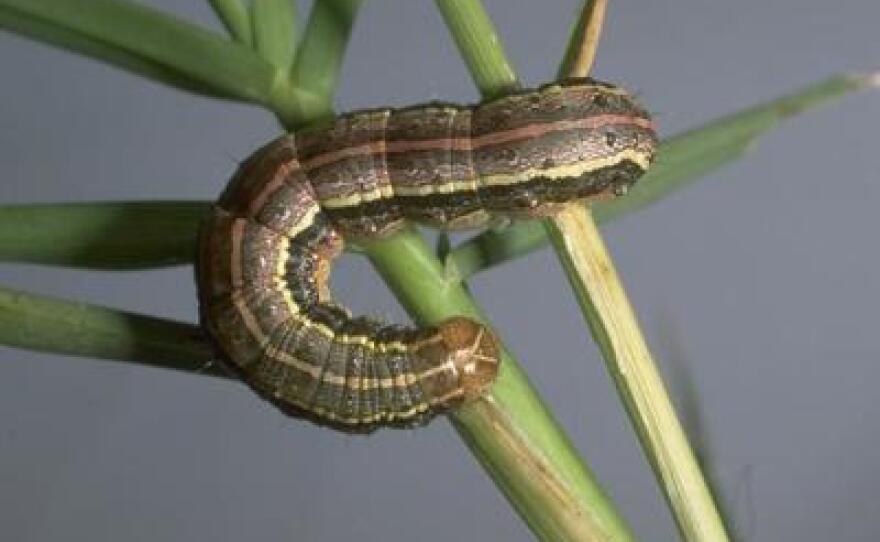There’s an army worm outbreak in Sussex County.
You may not know what army worms are, but David Owens, an agricultural entomologist with the University of Delaware Cooperative Extension, says if you live Southern Delaware you may need to deal with them.
They arrived late this summer.
“An army worm is a moth; it’s a tropical species. It over-winters in Florida and every summer it migrates up from Florida across the United States. It’s about an inch long; it’s a drab brown - brownish-grey moth and it favors grasses.”
Owens says Sussex County residents seeing lawns turn brown may have this insect to blame. And they’ll likely stick around until the first frost.
He says the caterpillars seem less troublesome to warm-season grasses and prefer cool-season grasses such as fescues.
One way to test your lawn to see if it is infested with army worms is to pour soapy water onto a patch of grass; if the caterpillar is present, it will immediately come out of the ground.
Another sign of infestation is if birds are continually feeding on your lawn. Birds love to feast on army worms.
Owens says they can be gotten rid of easily using a few safe insecticides.
“The most common of which is pyrethroids. But there’s a few other classes that are very safe to handle and very safe for non-target organisms. Active ingredients like spinosad or BT or clorantronylipryl are all very effective on them.”
Owens notes that army worms can also infest soybeans, sweet and field corn and sorghum and hay crops. And this year, he says they are seeing infestations showing up on recreational fields and even on golf courses.
Owens notes another generation of army worms moths are set to hatch this week and their feeding will be in high gear by next week.
Army worms are not dangerous to humans or pets.
If you have concerns about your lawn being infested with army worms, Owens says you should contact the University of Delaware Cooperative Extension at 730-4000 and ask to speak to Turf Grass Nutrient Management Extension Agent John Emerson. Or you can emial him directly at jremer@udel.edu.







